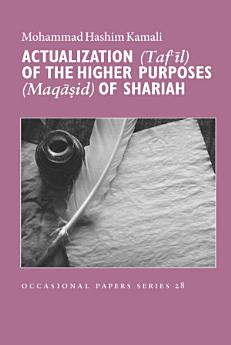Actualization (Taf’il) of the Higher Purposes (Maqasid) of Shari’ah
About this ebook
About the author
Mohammad Hashim Kamali is currently Chairman and CEO of the International Institute of Advanced Islamic Studies in Kuala Lumpur. He was professor of law and a Faculty Dean at the International Islamic University of Malaysia from 1985 to 2007. He is currently a Shariah Advisor with the Securities Commission of Malaysia, Chairman of the CIMB Shariah Board, and Chairman of Shariah Board, Stanlib Corporation of South Africa.
Professor Kamali has addressed over 120 national and international conferences, published 16 books and over 110 academic articles. He has authored a number of works including “Freedom of Expression in Islam” (Cambridge, 1997); “Freedom, Equality and Justice in Islam” (Cambridge, 2002); and “A Textbook of Hadith Studies” (Leicester, UK, 2005). He received the Ismail al-Faruqi Award for Academic Excellence twice, in 1995 and 1997, and is listed in a number of leading “Who’s Who in the World”. (2008).











